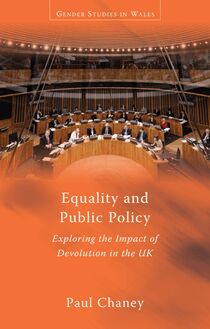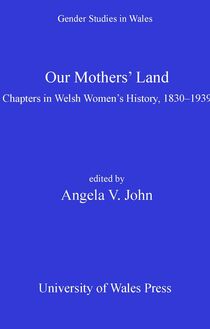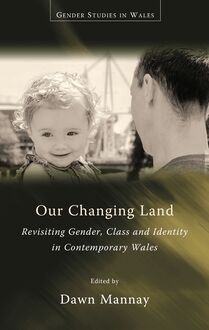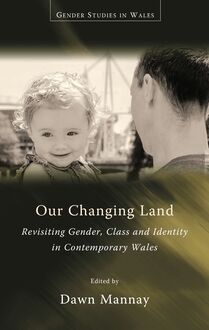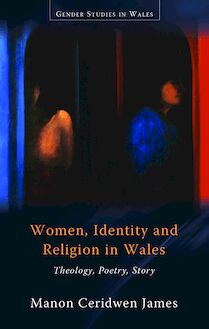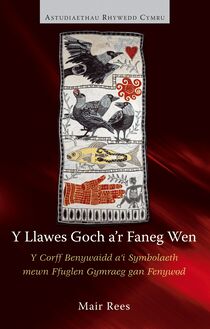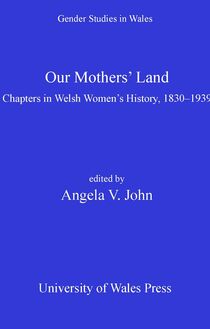-
 Univers
Univers
-
 Ebooks
Ebooks
-
 Livres audio
Livres audio
-
 Presse
Presse
-
 Podcasts
Podcasts
-
 BD
BD
-
 Documents
Documents
-
- Cours
- Révisions
- Ressources pédagogiques
- Sciences de l’éducation
- Manuels scolaires
- Langues
- Travaux de classe
- Annales de BEP
- Etudes supérieures
- Maternelle et primaire
- Fiches de lecture
- Orientation scolaire
- Méthodologie
- Corrigés de devoir
- Annales d’examens et concours
- Annales du bac
- Annales du brevet
- Rapports de stage
La lecture à portée de main
Vous pourrez modifier la taille du texte de cet ouvrage
Découvre YouScribe en t'inscrivant gratuitement
Je m'inscrisDécouvre YouScribe en t'inscrivant gratuitement
Je m'inscrisEn savoir plus
Vous pourrez modifier la taille du texte de cet ouvrage
En savoir plus

Description
Sujets
Informations
| Publié par | University of Wales Press |
| Date de parution | 15 septembre 2013 |
| Nombre de lectures | 0 |
| EAN13 | 9781783165810 |
| Langue | English |
Informations légales : prix de location à la page 0,0650€. Cette information est donnée uniquement à titre indicatif conformément à la législation en vigueur.
Extrait
POETRY, GEOGRAPHY, GENDER
Gender Studies in Wales
Astudiaethau Rhywedd yng Nghymru
Series Editors
Jane Aaron, University of South Wales
Brec’hed Piette, Bangor University
Sian Rhiannon Williams, Cardiff Metropolitan University
Series Advisory Board
Deirdre Beddoe, Emeritus Professor
Mihangel Morgan, Aberystwyth University
Teresa Rees, Cardiff University
The aim of this series is to fill a current gap in knowledge. As a number of historians, sociologists and literary critics have for some time been pointing out, there is a dearth of published research on the characteristics and effects of gender difference in Wales, both as it affected lives in the past and as it continues to shape present-day experience. Socially constructed concepts of masculine and feminine difference influence every aspect of individuals’ lives; experiences in employment, in education, in culture and politics, as well as in personal relationships, are all shaped by them. Ethnic identities are also gendered; a country’s history affects its concepts of gender difference so that what is seen as appropriately ‘masculine’ or ‘feminine’ varies within different cultures. What is needed in the Welsh context is more detailed research on the ways in which gender difference has operated and continues to operate within Welsh societies. Accordingly, this interdisciplinary and bilingual series of volumes on Gender Studies in Wales, authored by academics who are leaders in their particular fields of study, is designed to explore the diverse aspects of male and female identities in Wales, past and present. The series is bilingual, in the sense that some of its intended volumes will be in Welsh and some in English.
POETRY, GEOGRAPHY, GENDER
Women Rewriting Contemporary Wales
Alice Entwistle
© Alice Entwistle, 2013
All rights reserved. No part of this book may be reproduced in any material form (including photocopying or storing it in any medium by electronic means and whether or not transiently or incidentally to some other use of this publication) without the written permission of the copyright owner except in accordance with the provisions of the Copyright, Designs and Patents Act 1988. Applications for the copyright owner’s written permission to reproduce any part of this publication should be addressed to the University of Wales Press, 10 Columbus Walk, Brigantine Place, Cardiff CF10 4UP.
www.uwp.co.uk
British Library Cataloguing-in-Publication Data
A catalogue record for this book is available from the British Library.
ISBN 978-0-7083-2669-5
e-ISBN 978-1-78316-581-0
The rights of Alice Entwistle to be identified as author of this work have been asserted in accordance with sections 77, 78 and 79 of the Copyright, Designs and Patents Act 1988.
Cover image: Chimerical coast by Sarah Jane Brown, reproduced by kind permission of the artist.
For Claire Coghlin and Gareth Reeves who showed me how, and for Tom, with love
Contents
Acknowledgements
Abbreviations
Preface
Introduction
1 On the Border(s): The Interstitial Poetries of the Contact Zone
2 ‘Not without strangeness’: Ruth Bidgood’s Unhomely Mid Wales
3 Frontier Country: Christine Evans
4 ‘A kind of authentic lie’: Gwyneth Lewis’s English-Language Sequences
5 Traverses: Gillian Clarke, Christine Evans, Catherine Fisher and Ireland/Wales
6 Wales and/or Thereabouts: Sheenagh Pugh, Wendy Mulford and Zoë Skoulding
Afterword
Notes
Bibliography
Acknowledgements
Thanks are due first to the publishers, especially Sarah Lewis, Dafydd Jones, Siân Chapman and Teleri Williams† at the University of Wales Press, and my editor and colleague Professor Jane Aaron. I am also indebted to the original commissioners, Cary Archard and Mick Felton at Seren, for their forbearance and generosity in recent months. I am likewise very grateful to colleagues past and present at the University of Glamorgan, now the University of South Wales, for all kinds of support including a crucial sabbatical: Tony Curtis, Gavin Edwards, Philip Gross, Jeremy Hooker, Ruth McElroy, Chris Meredith, Bryony Randall, Fiona Reid, Andy Smith, Diana Wallace, Jeff Wallace and Martin Willis. I owe a particular debt to Katie Gramich, and especially to that most assiduous of readers, Kevin Mills, for his unstinting practical and scholarly help in the project’s crucial later stages. Other kinds of thanks go to Neil Astley at Bloodaxe Books, William Ayot of Poetry on the Border, Claire Connolly, Jarlath Costello, Jo Gill, John Goodby, Matthew Jarvis, Jane Moore, Francesca Rhydderch, Pete Vokes and the tireless staff at the National Library for Wales, and the Poetry Library, especially Miriam.
I am grateful to the following authors and publishers for granting me permission to publish extracts from: Tiffany Atkinson: Kink and Particle (Seren Publishing, 2006) and Catulla et Al (Bloodaxe Books, 2011); Ruth Bidgood, Selected Poems (Seren Publishing, 1995), New and Selected Poems (Seren Publishing, 2004), Hearing Voices (Cinnamon Press, 2008) and Time Being (Seren Publishing, 2009); Gillian Clarke: Letting in the Rumour (Carcanet Press, 1989), Collected Poems (Carcanet Press, 1997); Anne Cluysenaar, Timeslips: New and Selected Poems (Carcanet Press, 1997) and Migrations (Cinnamon Press, 2011); Sarah Corbett, The Red Wardrobe (Seren Publishing, 1998); Menna Elfyn, Perffaith Nam: Dau Ddetholiad a Cherddi Newydd / Perfect Blemish: New and Selected Poems 1995–2007 (Gomer/Bloodaxe Books, 2007); Christine Evans, Looking Inland (Poetry Wales Press, 1983), Cometary Phases (Seren Publishing, 1989), Island of Dark Horses (Seren Publishing, 1995) and Burning the Candle (Gomer, 2006); Catherine Fisher, Immrama (Seren Publishing, 1988), The Unexplored Ocean (Seren Publishing, 1994), Altered States (Seren Publishing, 1999); Gwyneth Lewis, Parables and Faxes (Bloodaxe, 1998), Chaotic Angels: Poems in English (Bloodaxe, 2005), A Hospital Odyssey (Bloodaxe, 2010) and Sparrow Tree (Bloodaxe, 2011); Hilary Llewellyn-Williams, Animaculture (Seren Publishing, 1997); Wendy Mulford, And Suddenly, Supposing: Selected Poems (Etruscan Books, 2002), ‘Alltud’ (Scintilla, 2009) and The Land Between (Reality Street, 2009); Pascale Petit, The Zoo Father (Seren Publishing, 2001); Sheenagh Pugh, Sing for the Taxman (Seren Publishing, 1993), Id’s Hospit (Seren Publishing, 1997), Stonelight (Seren Publishing, 1999), The Beautiful Lie (Seren Publishing, 2002) and Long Haul Travellers (Seren Publishing, 2008); Deryn Rees-Jones, The Memory Tray (Seren Publishing, 1994), Signs Round a Dead Body (Seren Publishing, 1998) and Quiver (Seren Publishing, 2004); Jo Shapcott, Tender Taxes: Versions of Rilke’s French Poems (Faber and Faber 2001); Zoë Skoulding, Remains of a Future City (Seren Publishing, 2008); Anne Stevenson, ‘Binoculars in Ardudwy’ (Bloodaxe, 2005); Samantha Wynne-Rhydderch, Banjo (Picador/PanMacmillan, 2012).
This book could not have happened without the cooperation of the poets themselves, especially those I have been able to interview. Thanks are due to Tiffany Atkinson, Ruth Bidgood, Anne Cluysenaar, Menna Elfyn, Christine Evans, Catherine Fisher, Wendy Mulford, Hilary Llewellyn-Williams, Pascale Petit, Sheenagh Pugh, Deryn Rees-Jones, Samantha Wynne Rhydderch, Zoë Skoulding and Anne Stevenson. I am especially grateful to Gwyneth Lewis for – among many kindnesses – an epigraph which was for so long my title, and to the artist Sarah Jane Brown, for allowing me to reproduce Chimerical Coast on the front cover.
Finally I want to offer heartfelt thanks to the people who, as friends and family, have had to endure the writing of this book at close quarters, and have done so with unfailing understanding, interest and support: my mother and siblings; Lisa Beaumont, a source of continuing inspiration and respect, Nikki, Shelley, Ann, Helen and Hilary; and above all Tom, Alf and Clem, who between them have made so much possible.
Abbreviations
Ruth Bidgood
HV
Hearing Voices
NSP
New and Selected Poems
RBSP
Selected Poems
Gillian Clarke
GCCP
Collected Poems
Sarah Corbett
RW
The Red Wardrobe
TWB
The Witch Bag
Menna Elfyn
PN
Perfect Blemish / Perffaith Nam
Christine Evans
BtC
Burning the Candle
CP
Cometary Phases
IDH
Island of Dark Horses
LI
Looking Inland
Catherine Fisher
AS
Altered States
TUO
The Unexplored Ocean
Gwyneth Lewis
AHO
A Hospital Odyssey
CA
Chaotic Angels
SR
Sunbathing in the Rain
ST
Sparrow Tree
Wendy Mulford
ASS
And Suddenly Supposing
TLB
The Land Between
Pascale Petit
TZF
The Zoo Father
Sheenagh Pugh
IH
Id’s Hospit
LHT
Long-Haul Travellers
SFTT
Sing for the Taxman
TBL
The Beautiful Lie
Creu Gwir fel gwydr o ffwrnais awen / In these stones horizons sing
Gwyneth Lewis
Look at any word long enough and you will see it open into a series of faults, into a terrain of particles each containing its own void.
Robert Smithson
Preface
Creu Gwir fel gwydr o ffwrnais awen / In these stones horizons sing
Standing some 6 feet tall, the physically enormous words slicing through the burnished sides of the Wales Millennium Centre, rearing beside the new Senedd at the heart of Cardiff’s regenerating bay, signify in diverse ways. Mediating between the bustle of Roald Dahl Plas and the soaring interior of Wales’s largest performance space which they help to illumine, materially speaking they comprise a giant poem-window, operating simultaneously as both installation artwork and architectural feature. In this functionality, the poem is a threshold: it stands, liminally, between the domains it spans, linking and separating seen and unseen, art and dailiness, cultural and socio-economic and, perhaps most obviously, its two languages. At the same time, from its elevated vantage point (as from the numerous publicity materials on which it appears) it beams out, across the artificial lake now marking the congested historic sp
-
 Univers
Univers
-
 Ebooks
Ebooks
-
 Livres audio
Livres audio
-
 Presse
Presse
-
 Podcasts
Podcasts
-
 BD
BD
-
 Documents
Documents
-
Jeunesse
-
Littérature
-
Ressources professionnelles
-
Santé et bien-être
-
Savoirs
-
Education
-
Loisirs et hobbies
-
Art, musique et cinéma
-
Actualité et débat de société
-
Jeunesse
-
Littérature
-
Ressources professionnelles
-
Santé et bien-être
-
Savoirs
-
Education
-
Loisirs et hobbies
-
Art, musique et cinéma
-
Actualité et débat de société
-
Actualités
-
Lifestyle
-
Presse jeunesse
-
Presse professionnelle
-
Pratique
-
Presse sportive
-
Presse internationale
-
Culture & Médias
-
Action et Aventures
-
Science-fiction et Fantasy
-
Société
-
Jeunesse
-
Littérature
-
Ressources professionnelles
-
Santé et bien-être
-
Savoirs
-
Education
-
Loisirs et hobbies
-
Art, musique et cinéma
-
Actualité et débat de société
- Cours
- Révisions
- Ressources pédagogiques
- Sciences de l’éducation
- Manuels scolaires
- Langues
- Travaux de classe
- Annales de BEP
- Etudes supérieures
- Maternelle et primaire
- Fiches de lecture
- Orientation scolaire
- Méthodologie
- Corrigés de devoir
- Annales d’examens et concours
- Annales du bac
- Annales du brevet
- Rapports de stage
